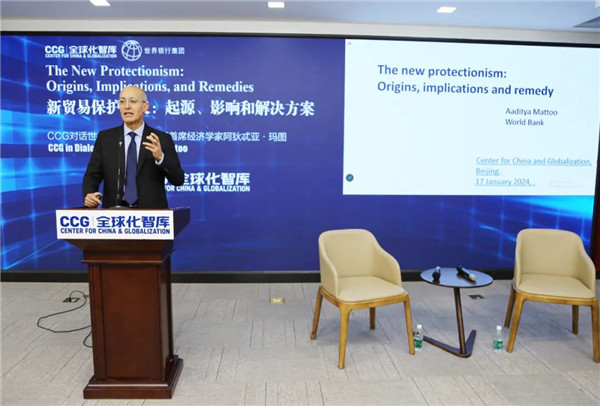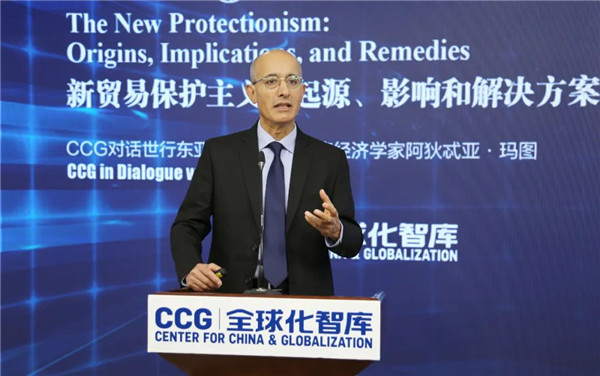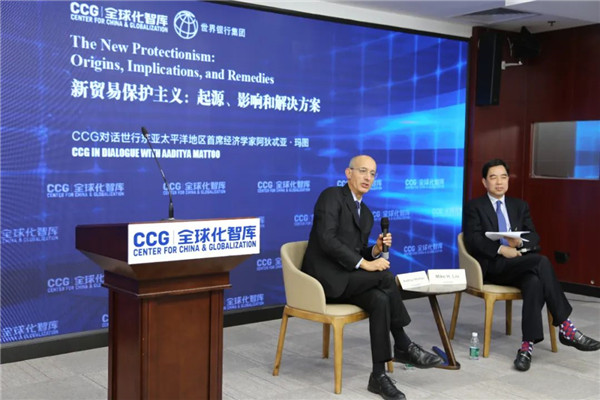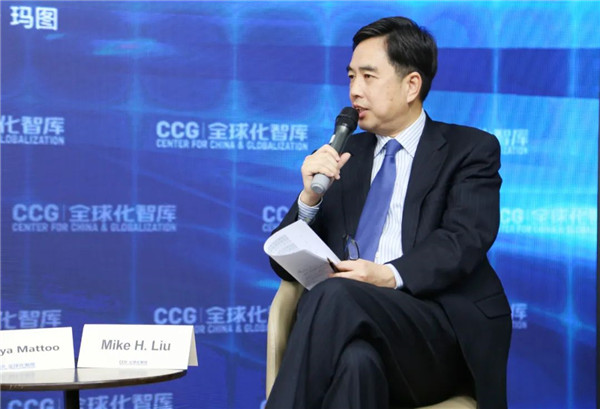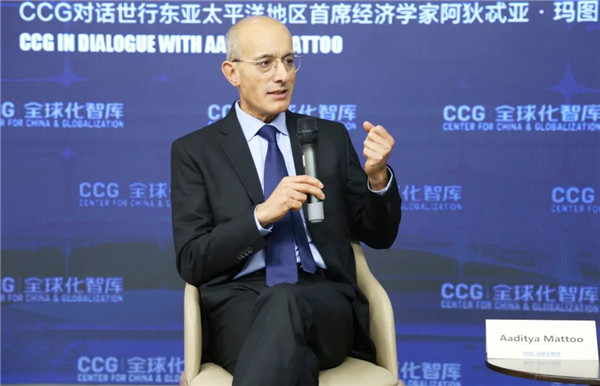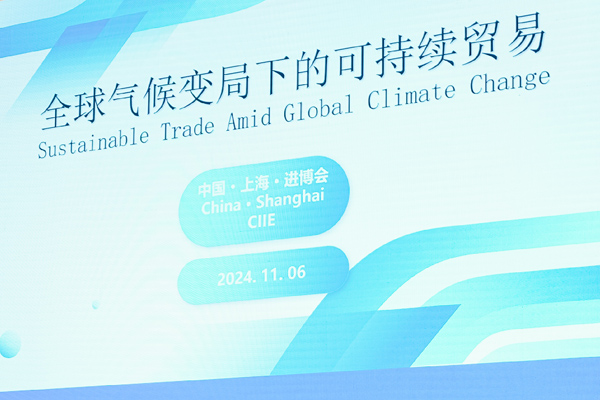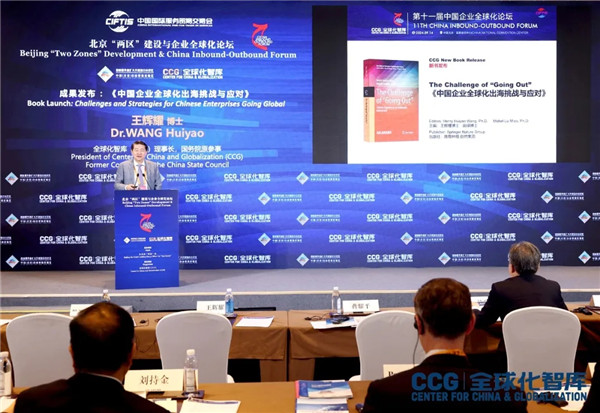World Bank Chief Economist Discusses Economic Development at CCG
January 17 , 2024[English]
[Chinese]
On January 17, 2024, Aaditya Mattoo, Chief Economist for the East Asia and Pacific region at the World Bank, visited the Center for China and Globalization (CCG) to discuss the origins, impacts and solutions of the new trade protectionism with CCG Vice President Mike Liu. The discussion also explored how governments can better respond to the current economic situation.
During the presentation, Mr. Mattoo provided a systematic analysis of the origins, impacts and solutions of the new trade protectionism. He pointed out that while globalization brings opportunities, it is also accompanied by imbalances in economic growth rates between countries and unequal distribution of wealth within nations. An increasing number of countries have recognized the potential risks of over-reliance on global markets. Competition for trade shares among different nations has also driven a shift in policy orientation. These factors influence each other and have contributed to the rise of trade protectionism, which has resulted in the diversion of trade, the politicization of trade, an increase in indirect trade, suppressed innovation, and an increased uncertainty in the global trade environment.
Mr. Mattoo proposed that exchanging regulatory commitments from exporter countries for market access could be a new way to expand international trade cooperation. He recognized that China has continued to open up markets, remained committed to international cooperation, and actively assumed its responsibilities as a major international power. This has enabled China to not only promote the development of its own trade, but also the stability and prosperity of the global economy.
Following Mr. Mattoo’s opening speech, CCG Vice President Mike Liu engaged in a discussion with Mr. Mattoo on a range of topics including future trends in globalization, world trade mechanisms, and cooperation among the world’s major economies.
CCG Vice President Mike Liu pointed out that there are different stages of protectionism. As the world economy slows down and the pressure of economic downturn increases, countries turn to protectionism to safeguard their interests and there will be resistance using multilateral mechanisms to resolve problems. However, different world trade coordination mechanisms play different roles, and China has used multilateral or bilateral mechanisms to strengthen its cooperation with the world.
Aaditya Mattoo reiterated that while the world economy may be facing the increased pressure in terms of economic downturn, the slowdown in growth is a necessary cost to combat inflation. With inflation and large-scale recessions now well under control, global economic factors such as employment and markets are recovering. The economic downturn has led to a resurgence of protectionism, and the global economy is facing the risk of further fragmentation. To ensure that order is maintained in trade and promote prosperity in world trade, we should engage in broader cooperation that goes beyond trade and transcends national borders, especially under the framework of the WTO and climate agreements. In terms of trade, China has achieved significant technological accomplishments that can benefit the world in a number of areas. It also needs to obtain resources from the world to guarantee its own development. Trade agreements can unite countries that cherish the same ideals and follow the same development paths, while also bring together countries with different goals.
In the Q&A session, journalists from Phoenix TV, CRI Online and other media outlets interacted with the two discussants on the challenges and opportunities facing China’s economy in 2024, new drivers in China’s economy and the globalization of data and new protectionism.

